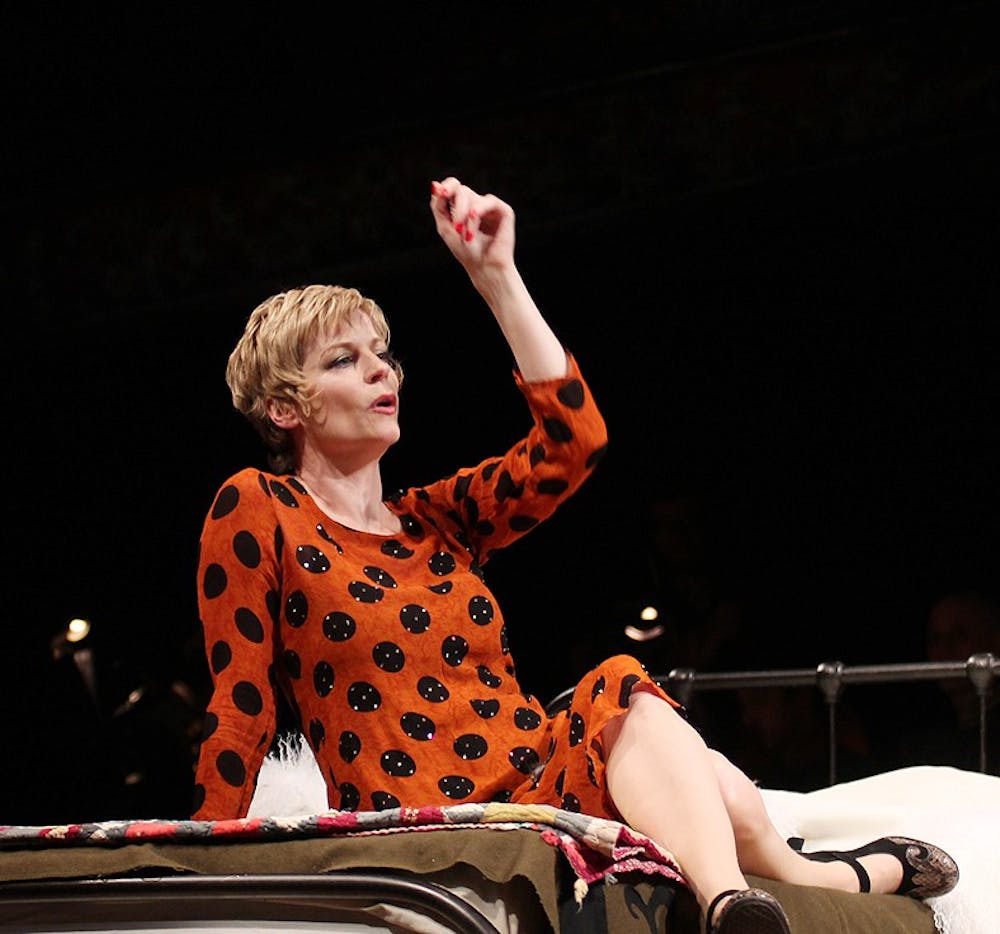1930s Berlin: Members of the cabaret keep the noise level up at their riotous nightclub, drowning out the fear and troubles of Weimar Republic Germany that are knocking at the front door.
Tonight, PlayMakers Repertory Company is bringing this deafening noise back to life in its first-ever production of the Tony Award-winning musical “Cabaret.”
The musical, written by Joe Masteroff and based on a play by John Van Druten, revolves around the lives of those involved with The Kit Kat Klub in 1930s Berlin.
The play follows Sally Bowles, the epitome of a self-destructive cabaret girl who seeks the limelight and hides from the reality of what is happening outside the The Kit Kat Klub — as Hitler’s Reich encroaches upon Germany.
“The Kit Kat Klub is keeping the party going to not see the horrible things going on — it is a metaphor for a society spinning out of control,” said Joe Haj, director of the show and producing artistic director for PlayMakers.
Haj added that in today’s society, the threat of a similar large-scale downfall looms.
In the show American writer Cliff Bradshaw, portrayed by John Dreher, journeys to Berlin seeking inspiration and winds up falling in love with Sally, who is portrayed by Lisa Brescia.
“Sally is resilient, and while she wrestles with the idea of how to live a more conventional life, in the end, she cannot adhere to society’s norms and expectations,” Brescia said.
Haj said he wanted Taylor Mac, who had performed at PlayMakers a few years ago, to perform in this version of “Cabaret” as the emcee.



